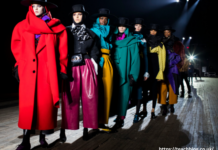Table of Contents
Introduction
Chun-Li, the iconic fighter from Street Fighter, made her way into Fortnite as a playable character, quickly becoming a favorite among fans. However, her popularity has also sparked certain trends across the internet, leading to a rise in user-generated content, including inappropriate material. Terms like “Chun-Li Fortnite R34” have gained traction, causing concerns around digital responsibility and content moderation. This article will explore Chun-Li’s role in Fortnite, the rise of fan content, and the importance of responsible online behavior.
Chun Li Fortnite r34
Epic Games introduced Chun-Li as part of Fortnite’s crossover with the Street Fighter franchise. Her addition was part of a broader strategy to incorporate beloved pop-culture icons into the battle royale game. chun li fortnite r34 is known for her fast combat moves, strong kicks, and striking appearance, which made her a natural fit for Fortnite’s vibrant world.
Upon release, players could purchase Chun-Li’s outfit from the in-game store, complete with her trademark blue qipao and spiked bracelets. Alongside her release came special emotes and other cosmetics that increased her popularity in the Fortnite community. This blend of nostalgic gaming culture with Fortnite’s interactive environment boosted her appeal among both casual and competitive players.
What is R34 and Why is it Controversial?
“Rule 34” (often abbreviated as R34) is an internet meme that states, “If something exists, there is porn of it.” The term applies to countless characters across pop culture, including video game icons like Chun-Li. When characters such as chun li fortnite r34 gain popularity in mainstream media, some fans unfortunately create explicit content, often labeled under R34. This type of content is inappropriate for general audiences and conflicts with the terms of service on many platforms.
The phrase “Chun-Li Fortnite R34” refers to fan-made, adult-themed material involving the character as portrayed in Fortnite. This trend raises significant concerns for parents, younger gamers, and even the original developers who intended for the game to remain family-friendly.
The Impact of Fan Art and Online Trends
Fan art and user-generated content are common aspects of online gaming communities. Creative expression can be positive, inspiring fan fiction, digital art, and cosplay. However, the rise of inappropriate trends like R34 content reflects the darker side of internet fandom.
When public figures and fictional characters become subject to such content, it can blur the lines between fun fan engagement and harmful, disrespectful behavior. This not only disrupts community standards but can also expose minors to content they should not encounter. Fortnite is a game enjoyed by millions of players, including children, making it critical to maintain online spaces that are appropriate and safe.
How to Stay Safe and Promote Healthy Online Habits
Given the open nature of the internet, it’s important for players, parents, and content creators to adopt responsible browsing practices. Here are a few tips to help protect yourself or your family from inappropriate content online:
- Content Filters: Utilize parental controls and browser filters to block adult content. Most web browsers and devices offer built-in tools that allow users to restrict certain types of material.
- Educate Young Gamers: Open conversations with children about the risks of exploring certain online spaces. Teaching kids about online etiquette and safe browsing habits helps them navigate the internet responsibly.
- Community Guidelines: Platforms like Reddit, Discord, and others hosting fan content should be mindful of inappropriate trends. Reporting offensive content helps maintain safer communities.
- Platform Moderation: Epic Games has strict content policies for Fortnite and related forums. If you encounter R34 material or other inappropriate content, report it to the platform’s moderators immediately.
The Fine Line Between Fandom and Ethics
There’s nothing wrong with expressing admiration for favorite characters like chun li fortnite r34 through fan art, memes, or gameplay content. However, crossing into the realm of adult-themed material poses ethical challenges. Not only does it damage the original character’s integrity, but it can also contribute to a toxic online environment.
Fandom spaces thrive when respect and creativity are balanced. Encouraging positive contributions—like gameplay videos, character guides, or fan discussions—helps ensure that Fortnite remains a space for players to enjoy, collaborate, and engage safely.
Conclusion
The rise of trends such as “Chun-Li Fortnite R34” highlights the challenges of managing content in the digital age. While characters like chun li fortnite r34 enrich Fortnite’s world and inspire fan engagement, inappropriate trends serve as a reminder of the importance of online responsibility. By promoting safe browsing practices, reporting harmful content, and fostering positive fan communities, we can ensure that gaming remains a fun and inclusive experience for all players.



















